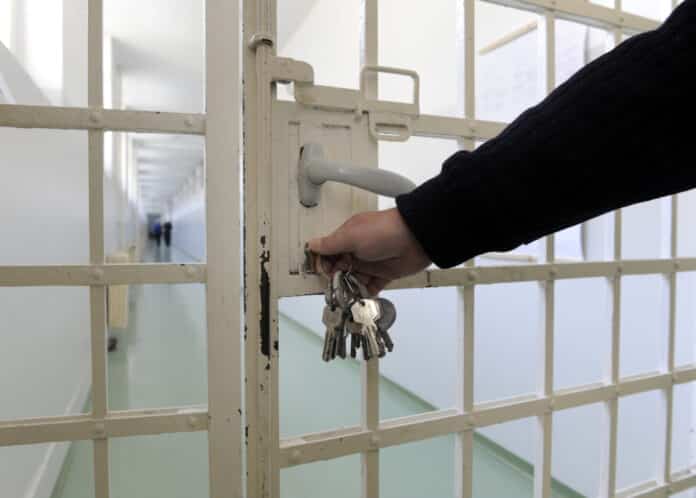HANCOCK COUNTY — It’s not a free “get out of jail card,” Prosecutor Brent Eaton said. But bail review and early release for inmates are hot topics at the Hancock County prosecutor’s office.
The American Civil Liberties Union’s efforts to bring about the release of inmates held in Indiana jails and prisons amid the pandemic is creating plenty of work for the prosecutor and the county courts.
In a petition filed March 30, the ACLU declared the Indiana Supreme Court should engage in “emergency rule making” to enable certain inmates to leave correctional facilities and “shelter at home” to reduce the threat of spreading the virus in jails and prisons.
Last week, Attorney General Curtis Hill filed a memorandum with the court opposing the ACLU’s position.
“The ACLU’s unprecedented request for the court to assume the power to manage prisons and jails is constitutionally and procedurally improper,” Hill said.
The unspoken message officials get from all this is if local officials don’t look at releasing more inmates early or on bond, state officials might do it for them.
“They don’t say that specifically, but that’s the way politics work,” Eaton said.
While jail officials are following safety guidelines released by the Centers for Disease Control and Prevention to keep inmates safe, the prosecutor’s office is continuing to help. Prosecutors have been working with the jail to lower the inmate count.
The jail population is down by 40% from the period immediately before restrictions were put in place as a result of COVID-19. As of Monday, April 13, a total of 138 people were in the Hancock County Jail, a total that actually is below its capacity.
Eaton’s office has been working with police, who are handing out summons for offenses instead of arresting people. They’re also, in some cases, asking for lower bonds. If a judge concurs, that also keeps people out of the jail. They’re also allowing for the outright early release of some prisoners who are near the end of their sentences.
Still, Eaton insists not every inmate is getting out early, and his office is following a protocol before they recommend a prisoner be freed. His office is evaluating each case individually to determine if it’s safe for the community to let an inmate out.
“The sheriff and I are both dedicated to the security and the safety of the residents of Hancock County, and that’s our primary and secondary goal,” Eaton said.
Eaton presented the Daily Reporter a list of five inmates who filed motions to modify their sentences in March. The inmates are from a list provided to the prosecutor by the jail commander, Bridget Foy. She listed the inmates as “potentials” for sentence modification.
One inmate was asking to have her sentence modified to time served for contempt charges on a civil issue; another sought sentence modification to time served for two Level 6 felony drug charges. In that case, the defendant had been given 365 days in jail and had served 177 days. The prosecutor’s office agreed to modify the sentence to time served.
The two cases show what type of inmates county officials are willing to work with in order to alter terms of a sentence, and Eaton wanted the community to know they’re not considering releasing those serving time for serious crimes.
“What we’re doing is looking at people who have served 80% to 90% of their executed sentence,” Eaton said. He noted, however, that making the call on who to release early is still subjective.
Before the prosecutor is willing to modify a case and not fight early release, his office is looking at the criminal history of the defendant and the nature of his/her underlying offense; their conduct in jail; and whether they’ve taken steps to better their lives.
The vast number of inmates being let out of jail early during the pandemic are those who have violated probation, Eaton said.
“Most are for misdemeanors, but some are Level 6 felonies,” he said. “There are a few who will have probation on the back side to fulfill, but those are the exceptions.”
As for the higher-level felony charges in cases where a person has been harmed, those inmates are much less likely to get a recommendation from his office for early release. But in the end, it will be up to the county judges, Eaton said.
Judge Scott Sirk, who presides in Hancock County Circuit Court, noted revisiting cases that have already been settled is just something the courts must deal with during these unprecedented times.
“I believe the court when presented with bond reduction issues of any kind, but particularly safety for the individual defendant and the community in this time of the coronavirus, must fairly hear the cases and make the best possible decision,” Sirk said.
Before rendering his decision on any bond reduction or sentence modification, Sirk said, as always, he’ll listen to the prosecutor’s recommendation as well as to that of the defense attorney.
Circuit court had two bail review hearings on Level 4 felony offenders set for Tuesday, April 14, but it appears both are close to settling with either a change of plea or a sentencing hearing set for May.
The prosecutor’s office is in frequent contact with officials from community corrections, the jail and the sheriff’s office, before any inmate is released.
“We’re in touch multiple times a day because all of us are invested in the rule of law,” Eaton said.





